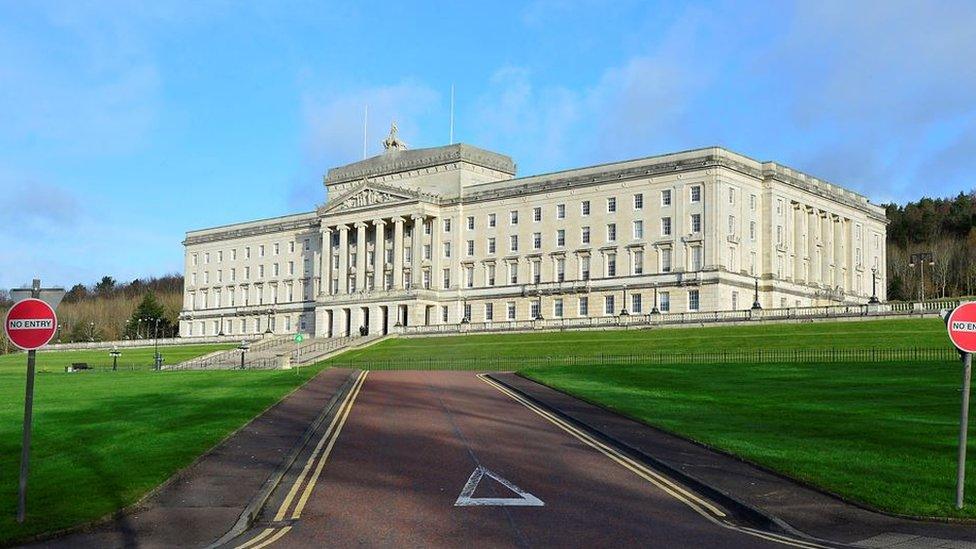Stormont: The five years which began and ended in deadlock
- Published
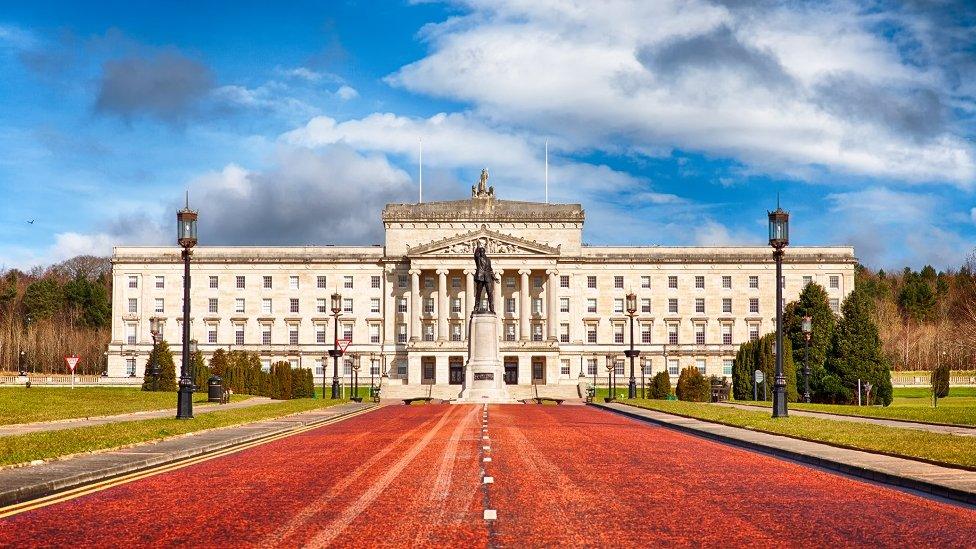
There was a last-day-of-school feeling on the hill on Thursday
How best to sum up Stormont's bumpy journey over the past five years?
It started in deadlock, returned in 2020 only to be confronted by a global pandemic and now it has ended in deadlock once more.
And 805 days since the parties agreed to return to the executive, there's now the small matter of an assembly election to fight.
While assembly members (MLAs) have had their share of trying times, the assembly's end of term report card is far from blank.
Just a quick glance at the list of legislation they have passed in two years and there are now new laws on everything , externalfrom abolishing parking charges at hospitals, strengthening laws against domestic abuse and ensuring support for children who are adopted.
In other areas where Northern Ireland lagged behind the rest of the UK for so long, because of previous stalemates, there is also now progress.
Tackling climate change, an opt-out organ donation system and making stalking a specific offence among them.
Then compare the 47 bits of legislation passed by Stormont since 2020 - half of them in just the last six weeks - to the 78 bills introduced in the 2011-2016 mandate, as detailed by the speaker Alex Maskey this week as he prepared to step down after more than two decades in front-line politics.
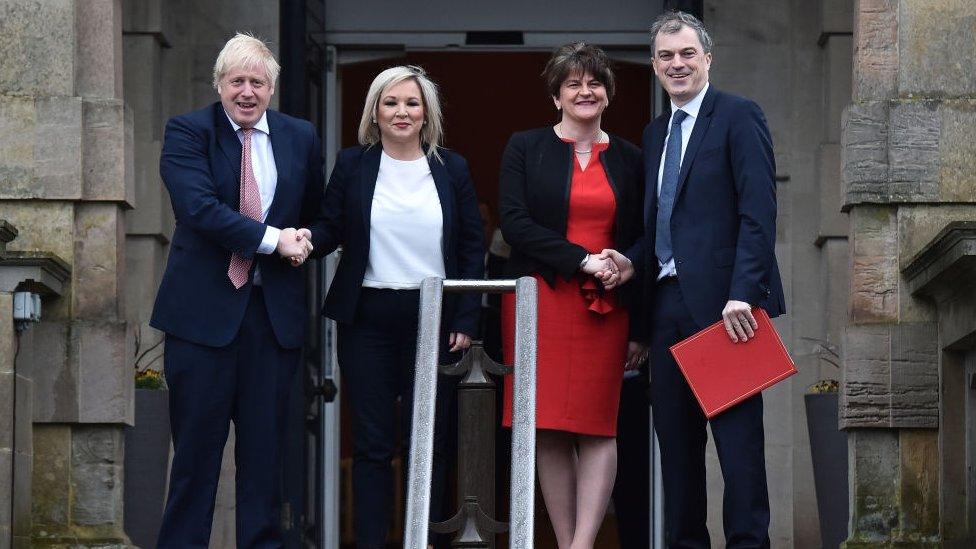
Prime Minister Boris Johnson, then NI Secretary Julian Smith with then First and Deputy First Ministers Arlene Foster and Michelle O'Neill in 2020 when Stormont was restored
Period poverty campaigners who came to Parliament Buildings on Thursday burst into song shortly after MLAs passed a bill to make period products more freely available, insisting Stormont can be a positive place for change.
But the distinct last-day-of-school feel didn't detract from the reality that it could be a long time before the next group of 90 MLAs can get on with making more change.
And others made clear as the assembly wrapped up that they feel little has been learned since the previous collapse.
Independent MLA Claire Sugden - herself a former justice minister in 2016 - remarked that departments were still working in "silos" and too often "pass the buck".
TUV leader Jim Allister, one of Stormont's biggest critics, used his end-of-term speech to describe power-sharing as "unsustainable and unworkable".
'It will come back'
But does it stand any chance of being revived yet again, after 5 May?
Julian Smith, an architect of the last effort - New Decade, New Approach - in January 2020, is probably one of the few who thinks it does.
The former Northern Ireland secretary said devolved government "had to continue".
"It's in the best interests of women, men and children across Northern Ireland, it's a huge economic opportunity," he said.
"The main thing is it comes back, and I believe it will come back."
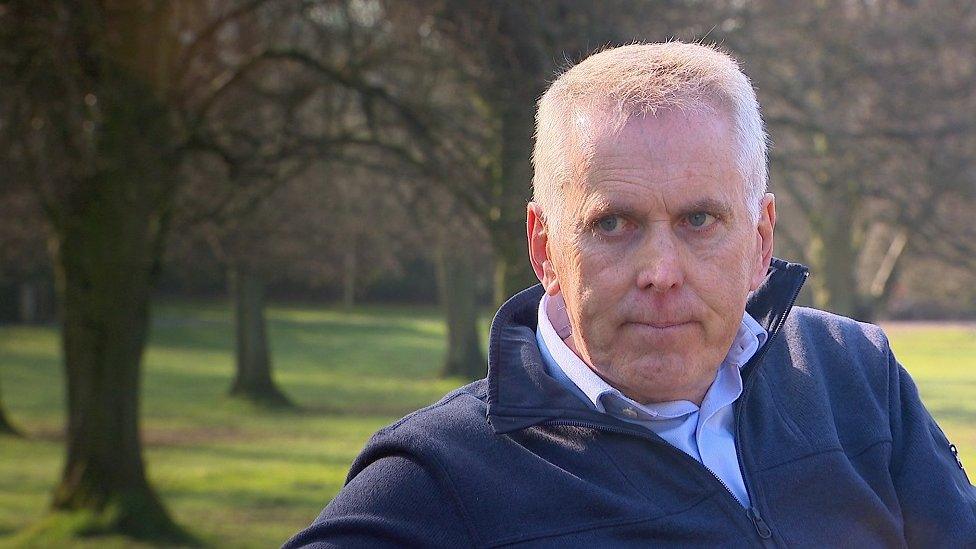
Former NI civil service chief David Sterling says the secretary of state is "quite interventionist"
After the election, the parties will have a period of 24 weeks - about six months - to reappoint a first and deputy first minister to lead the executive.
Until then, other ministers can remain in place but only as caretakers, unable to take any significant decisions in a potentially long limbo.
David Sterling, who was head of the Northern Ireland civil service from 2017 until 2020, is well versed in political crises.
He believes the six-month window will prove problematic.
"If there are 24 weeks available, at least 24 weeks will be taken," he said.
"My big fear is that if we don't get an executive back, we're going to see further decay and stagnation across our public services."
The to-do list for an incoming executive is already packed. including tackling the cost-of-living crisis facing many households and businesses.
'Harder to put back together'
There are also the ongoing UK-EU talks over the Northern Ireland Protocol which will factor into decisions taken by the Democratic Unionist Party (DUP) before power-sharing returns.
And in the interim, what about the Northern Ireland secretary's role?
Brandon Lewis has already announced he will step in over Northern Ireland's abortion laws after the election, bypassing the lack of executive approval on what has for many years been held up by political disagreement.
Mr Sterling described the secretary of state as "quite interventionist" and said that could pave the way for Westminster to take forward other changes.
Though the government still hasn't introduced the legislation on Irish and Ulster-Scots it promised to pass last autumn.
All those issues will again be raised on the campaign trail over the next six weeks.
What though comes after polling day?
"I just hope we get an executive quickly because this place badly needs it, the scale of the challenges we face requires that," added Mr Sterling.
"This time it will be harder to put back together than it was before."
Stormont has rarely stuck to the devolution timetable, but could it soon be out of service for good?
- Published24 March 2022
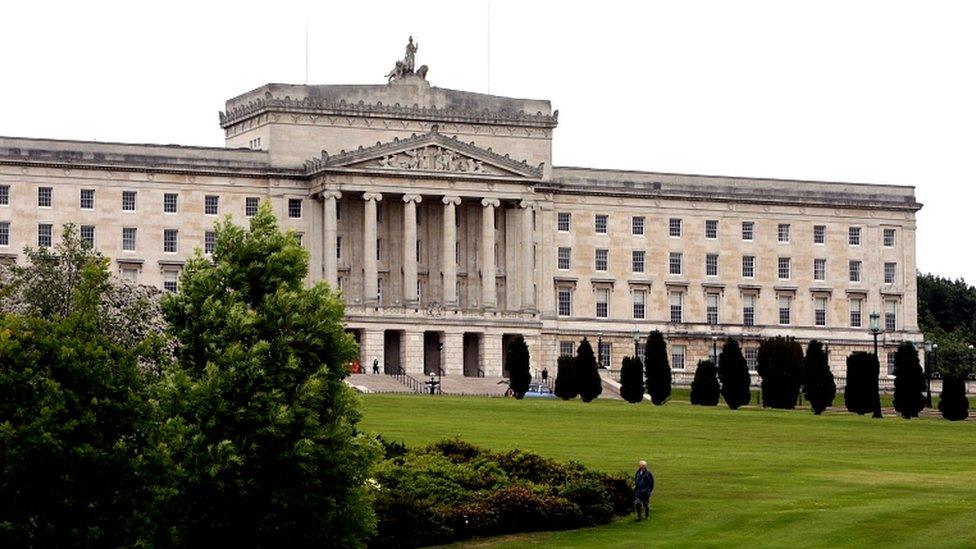
- Published3 February 2022
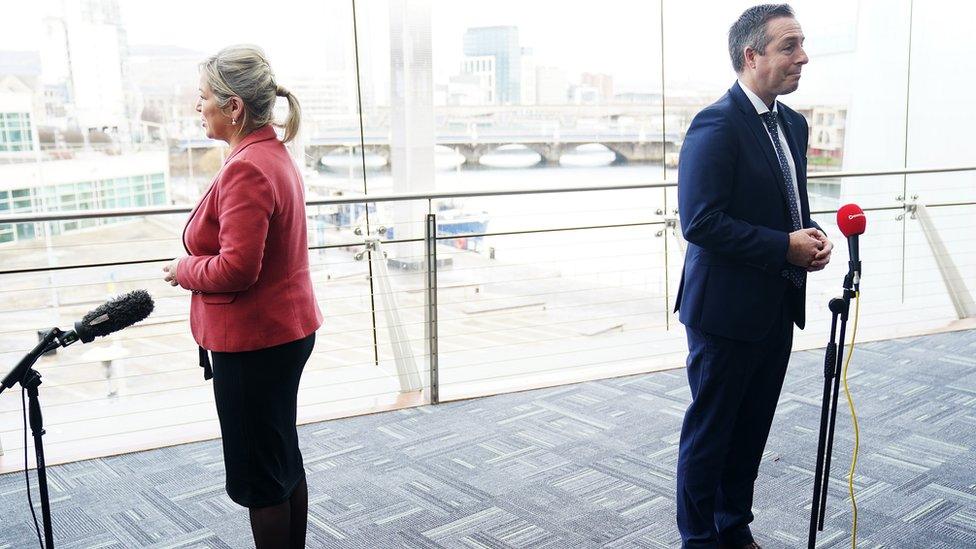
- Published7 February 2022
